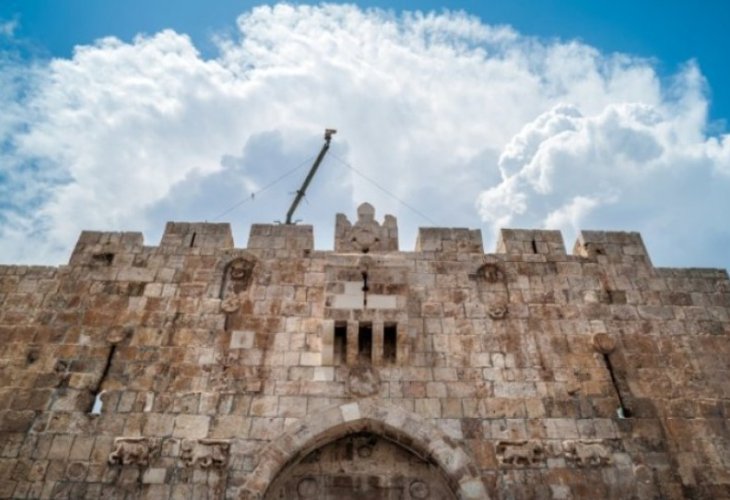Torah Personalities
Nevuchadnezzar II: The King Who Destroyed the First Temple
His rise, his cruelty, and his downfall. How the Babylonian emperor shaped Jewish history and met his end

Nevuchadnezzar II, the powerful king of the Neo-Babylonian Empire, is remembered as the ruler who destroyed the First Temple and exiled the people of Israel. His name appears in various forms throughout Tanach, including Nevuchadnetzar and Nevuchadretzar, but his legacy remains consistent: one of destruction, arrogance, and eventual Divine retribution.
Three Waves of Exile and the Temple’s Destruction
Nevuchadnezzar exiled the Jewish people in three separate stages. The first was during the reign of Yehoyakim, king of Yehudah. When Yehoyakim rebelled against Babylon, Nevuchadnezzar laid siege to Jerusalem and deported 7,000 elite warriors.
The second exile occurred during the brief three-month reign of Yehoyachin, Yehoyakim’s son, in 597 BCE. Nevuchadnezzar exiled him to Babylon along with another 10,000 people, including prominent figures like the prophet Yechezkel, Mordechai, Daniel, Chananiah, Mishael, and Azariah. He looted both the royal treasury and the sacred Temple vessels and installed Tzidkiyahu as puppet king over the remaining population.
Nine years later, Tzidkiyahu, encouraged by Egypt and against the prophet Yirmiyahu’s advice, revolted. Nevuchadnezzar responded with a brutal siege that began on the 10th of Tevet. After three and a half years, Jerusalem fell. The king’s forces captured Tzidkiyahu, killed his sons before his eyes, then blinded him and imprisoned him until Nevuchadnezzar’s death. His general, Nevuzaradan, destroyed the Temple, razed Jerusalem, and began the Babylonian exile.
Power, Arrogance, and Divine Retribution
Nevuchadnezzar ruled with absolute power and demanded worship. In Esther Rabbah, it is said he sat on the throne of King Shlomo and became consumed with pride. In Shir HaShirim Rabbah, his arrogance is linked to his eventual downfall.
When he destroyed the Temple, he ordered the Levite musicians to perform as they had in the Temple. But the captives refused, fearing they would profane their sacred service, and instead cut off their own thumbs to make playing impossible. The Pesikta Rabbati teaches that this act of self-restraint earned them a Divine promise: “You mastered yourselves and cut off your thumbs, and I will bring you back to Tzion.”
The destruction of the Temple, according to Nefesh HaChaim by Rabbi Chaim of Volozhin, was not the result of foreign military might but of Israel’s sins. “Nevuchadnezzar and Titus touched only the earthly Temple,” he wrote, “but our sins damaged the heavenly Temple.” The Gemara in Sanhedrin (96a) teaches that even the three respectful steps Nevuchadnezzar took for the honor of Hashem granted him power over the Temple.
He also built the golden statue in the plain of Dura and demanded universal worship. When Chananiah, Mishael, and Azariah refused, he threw them into a fiery furnace, but they were miraculously saved.
Eventually, his pride led him to declare himself a god. “I will ascend to the heavens and be like the Most High,” he boasted. In response, Divine judgment was swift: he was transformed into a beast, with the upper body of an ox and the lower body of a lion, and banished to the wilderness. For seven years he lived like an animal, eating grass and roaming the fields, while his subjects presumed him dead.
Madness, Death, and a Legacy of Ruin
During this time, Nevuchadnezzar’s son Evil-Merodach ruled in his place. When the king returned, he imprisoned his son out of paranoia and buried more than a thousand royal treasures near the Euphrates to prevent him from inheriting them. Upon Nevuchadnezzar’s death, his body was buried with honor, but Evil-Merodach refused to believe he was truly gone.
To convince him, they took the king’s corpse out of his grave, and only then did Evil-Merodach agree to emerge from prison to claim the throne. He instructed them to drag his father's corpse through the streets like that of a dishonored animal. He was eventually killed by his brother-in-law Neriglissar and was succeeded by his son Belshatzar.
The Midrash and Talmud emphasize Nevuchadnezzar’s spiritual corruption more than his military power. Though his empire expanded greatly, it collapsed within 25 years of his death. His cruelty, idolatry, and arrogance led to his downfall, serving as a chilling reminder that earthly greatness, prestige, and strength will not endure if one earns the wrath of Hashem.

